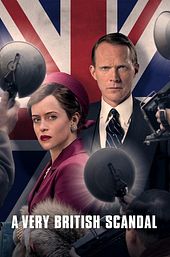Following the death of his daughter, Neil Armstrong (Ryan Gosling) applies and is selected for Project Gemini - NASA's program to put a man on the moon by the end of the decade. Faced with the realities of his decision, his wife Janet (Claire Foy) and their children must contend with the demands that it places on him and the physical danger he's placing himself in.
Out of his three movies so far, Damien Chazelle's work has focused on people who have a singular goal and the cost of chasing that to the detriment of others and themselves. For 'Whiplash', Miles Teller's character pushed himself to the edge of his physical capabilities to the best at what he does. For Emma Stone and Ryan Gosling in 'La La Land', the pursuit of artistic credibility and integrity meant that a burgeoning relationship was ultimately doomed. With 'First Man', it's the same thing - an "egghead pilot" puts himself forward as a candidate for NASA's Project Gemini, the program which would eventually lead to Apollo 11 and the first man on the lunar surface.
From the get-go, Ryan Gosling's performance embues Armstrong with a steely resolve and a glacial surface that breaks only in small, quiet moments in the movie. The rest of the time, he is focused and determined - but never cocky or outsized in the way previous spaceflight movies like 'The Right Stuff' handled it. Instead, he is a careful, deliberate man and almost charmless in how he approaches both other pilots and even his own wife, played by Claire Foy. The dynamic between the two is what gives 'First Man' the emotional core. As Janet Armstrong, Foy's portrayal is that of a lived-in, emotional human next to Armstrong's lack of enthusiasm or emotion. If Gosling carries the action, Foy carries the emotional heft of the movie and it's from this balance between the two that some of the most poignant moments arrive.
The finale, which sees Armstrong on the moon in a breathtakingly serene moment (best seen in IMAX, by the way), is rendered into something far more personal and meaningful than a lazy flag-planting moment. We see Armstrong not as some hero who has achieved far more than any human heretofore has done, but instead he's shown as someone who has repressed his own feelings and funneled himself into his work that, even on the moment of his triumph, his loss and grief bubbles out in such a small, yet meaningful gesture. A cynic might say it's hokey, but given the incredible dangers he's been through, it has an impact.
Chazelle's direction focuses in on the nuts, bolts and screws of each flight - literally - and this fixation on the mechanical components just shows how brutal and raw spaceflight was and presumably still is. Gosling's face is a mask of concentration throughout, even the camera spins and shudders and the sound design blasts and deafens. It's compelling stuff, but so much of the movie is made up in these moments that while it become somewhat overwhelming, though that's obviously the intent. Josh Singer's screenplay cleverly eschews the poetry and the glory of spaceflight, as that in itself is almost a cliche. Instead, Singer smartly fits each of the acts into a different stage of the mission and the toll that it takes on the family, placing in it real terms rather than simply just the stated goals of those beyond the scope of the movie.
Unlike other movies that may have covered the same setting and ideas, 'First Man' offers a fresh and unique perspective on a well-trodden surface. While it may not have the same flair of 'La La Land' or the snaredrum tension of 'Whiplash', 'First Man' captures the danger and grit of spaceflight in a way not previously seen and, beneath that, a human story about grief and loss.




















































































